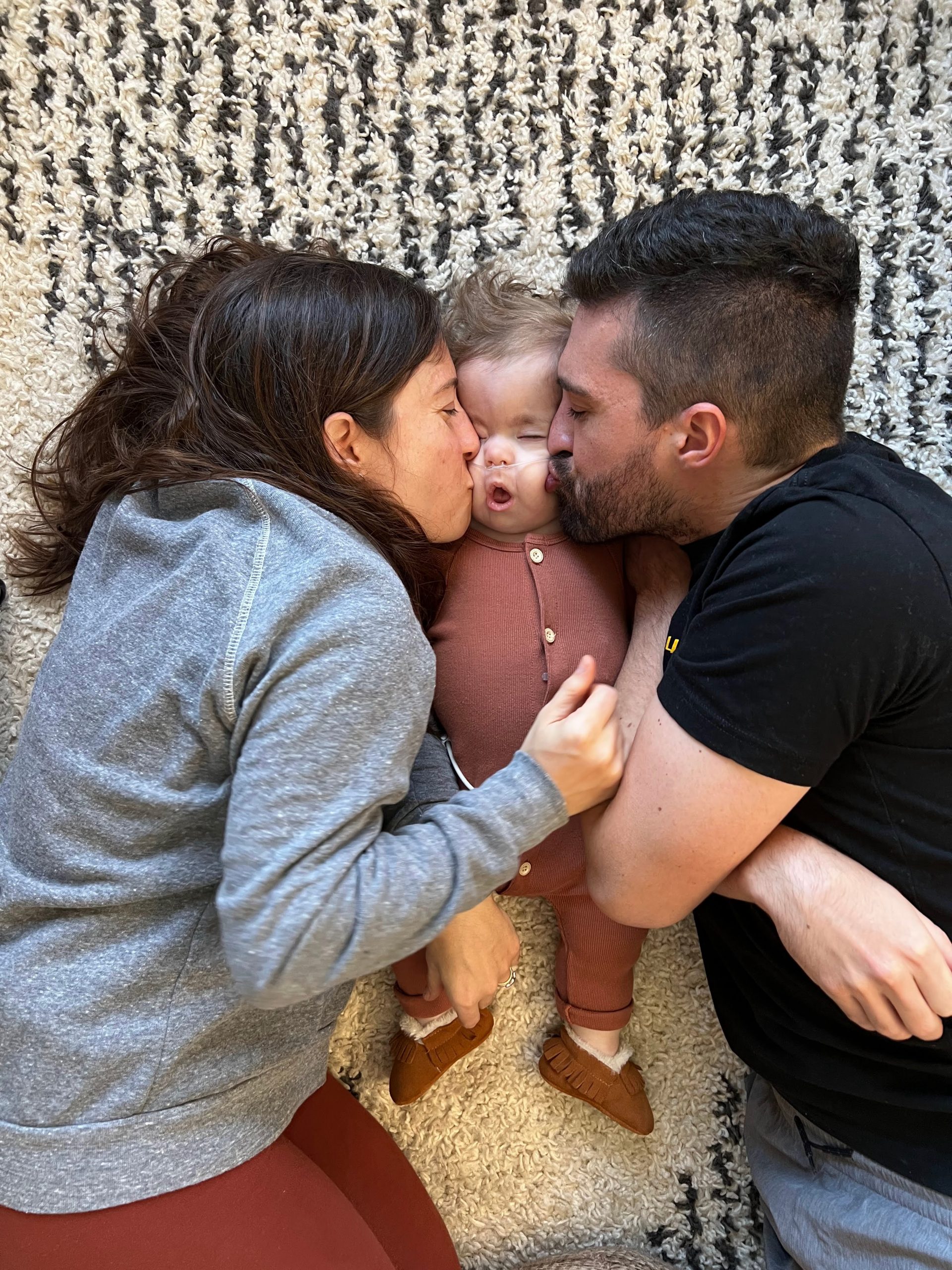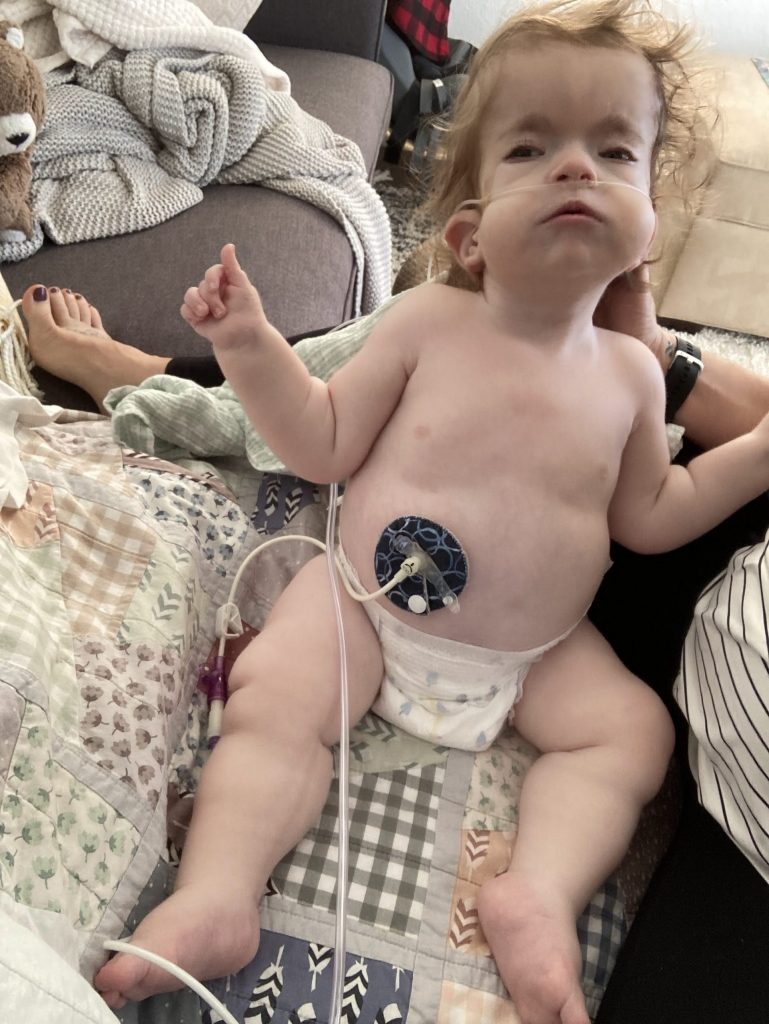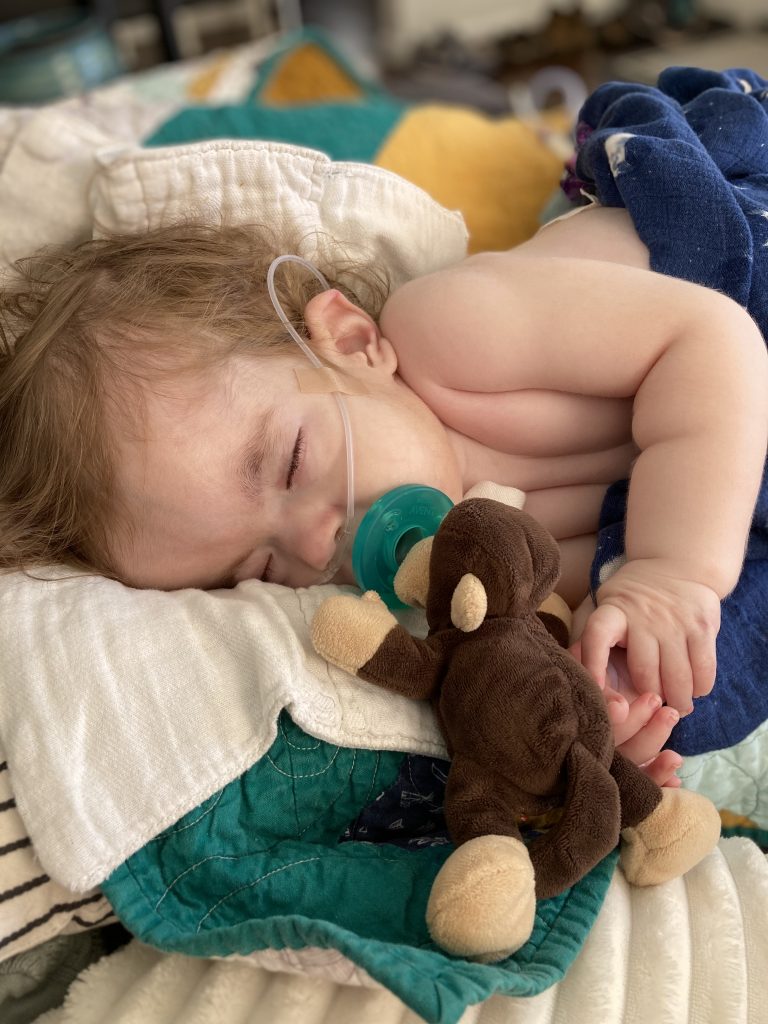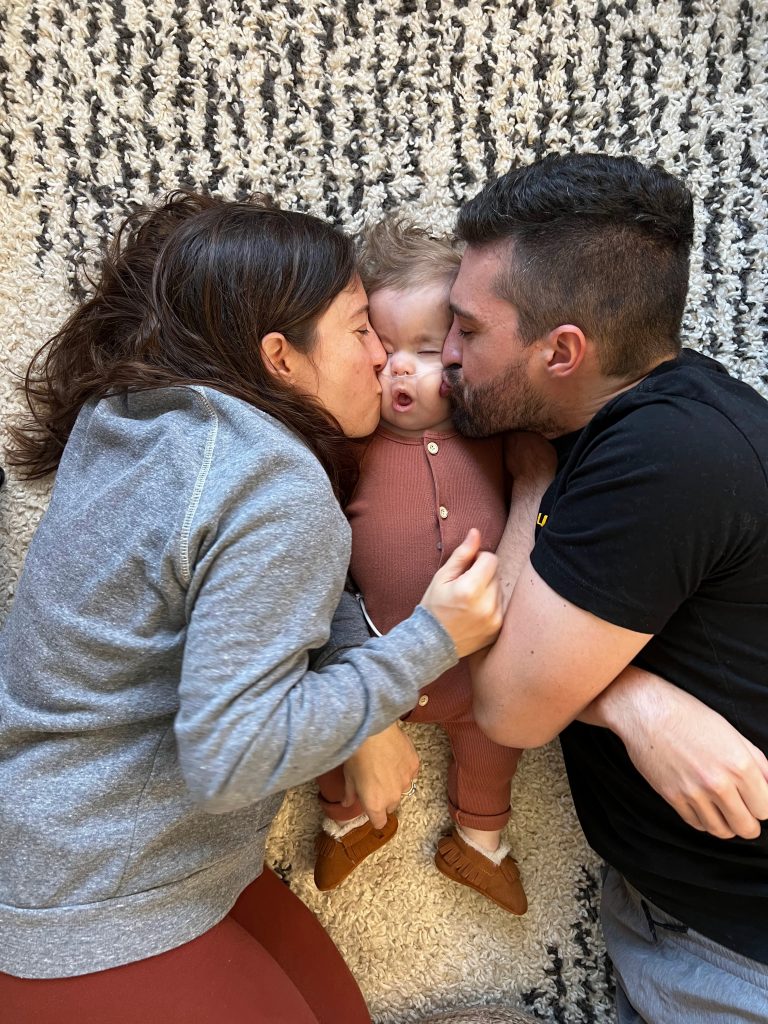12/6/2021
·Enable high contrast reading
Am I Drowning or Floating?

 There are moments, days, weeks where I am certain that I will be overcome by the crippling uncertainty of it all. I suppose that giving birth to a baby boy–whom we all anticipated to be healthy and nothing less than typical–with a genetic syndrome will do that to a person.
There are moments, days, weeks where I am certain that I will be overcome by the crippling uncertainty of it all. I suppose that giving birth to a baby boy–whom we all anticipated to be healthy and nothing less than typical–with a genetic syndrome will do that to a person.
When the protein causing the syndrome is isolated, the knowledge of the end brings an undeniable clarity. But the uncertainty and unknowns only increase when the de novo mutation has been identified in less than 100 children worldwide and there are more questions than answers, no timeline to guide our way (side note: there may be no other space, outside of the hospital, in which I could get away without defining de novo; this path we walk is on foreign land).
Our baby is living with a neurodegenerative condition, but we are all experiencing this condition –learning words and ways that we never knew existed. We all live with an ever-changing and declining definition of ‘good days,’ anticipating that the number of rotations we will share around the sun to be countable on one hand.
As these thoughts and their associated, uncountable emotions flood my mind, my heart rushes in my chest and my soul rages within, and I begin to question that which is impossible from solid ground: am I drowning?
Camden was born in July 2020. My midsummer boy who just missed June. While he was still a belly baby, the pandemic roared into our lives and my husband, Kyle, baby, and I, spent the last trimester of pregnancy in our 650 square foot home, isolated, together. Presently, Kyle is a fully remote worker and our family still spends each of our days with nothing more than a door separating us; we are all working, still somewhat isolated from the world, but infinitely together.
The work Camden and I do each day includes so much: hours of snuggles; singing melodic tunes and reading the tongue-twisters of childhood; opening our home to hospice providers, therapists, social workers; engaging in slow and gentle sensory play; attending to loads of needs and tubes that I will not detail; and walking a now well-worn path through the neighborhood when the weather allows.
Our days are also missing plenty: toddler babbles, giggles, smiles; the pitter-patter of small feet on hardwood or the bang-slide rhythm of crawling; tantrums and the resulting need for timeouts or discipline; tasting new, or any, foods together; experiencing the freedom, the luxury, that exists when you don’t have to wonder which day will be their last. At first it felt forced, but now I am fully assimilated into a form of parenting, caregiving, that I did not anticipate or learn from books, articles, or podcasts I sought out during pregnancy.
Being Camden’s mama different skills than that of mamas raising typical children. I have adopted a unique set of eyes that gives me a precious and heartbreaking perspective of the world. I have developed thicker armor and an intensity that leaves nothing unsaid. I am more fragile, more isolated, more mournful.
Yet, if you pay close attention here, our days are full of uncontainable celebration. I will not have to chase after my child. I am excused from disciplining his tender soul. I simply cannot compare him to other children or anticipate anything except exactly what he gives me moment to moment. Camden is the easiest, most complex baby that I may ever parent, and he has allowed me to learn a raw, pared down, child-focused form of parenting that I did not want, but have always needed.
 I am watching Camden sleep, watching the rise and fall of his chest, and perhaps it is this that triggers the reminder in my body: take a deep breath, and let it go. Inhale the light, exhale the darkness. As I breathe alongside my boy and revel in the simplicity and weightiness of us breathing, here, together, I nearly scoff at the idea of drowning. Could I, instead, be floating?
I am watching Camden sleep, watching the rise and fall of his chest, and perhaps it is this that triggers the reminder in my body: take a deep breath, and let it go. Inhale the light, exhale the darkness. As I breathe alongside my boy and revel in the simplicity and weightiness of us breathing, here, together, I nearly scoff at the idea of drowning. Could I, instead, be floating?
My midsummer boy has taught me that there is a radical hope that can keep singing, despite the circumstances, the knowledge of the end, the test results. Hope that, as Emily Dickinson says, “sings the tune without the words and never stops at all.” This hope can arise from within, from faith or experience or desire. Hope can be gifted from outside ourselves, from nature or hospice nurses or friends we choose as family.
For me, hope allows me to let go of all that is mixed up in Camden’s genes or missing from our life together. The letting go allows me to cease my raging and fighting, to transition from drowning in the depths to floating in the healing waters of the salty, sun-drenched sea that is here and now with this boy.






